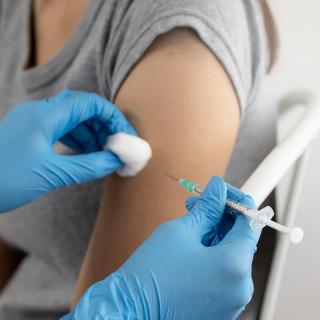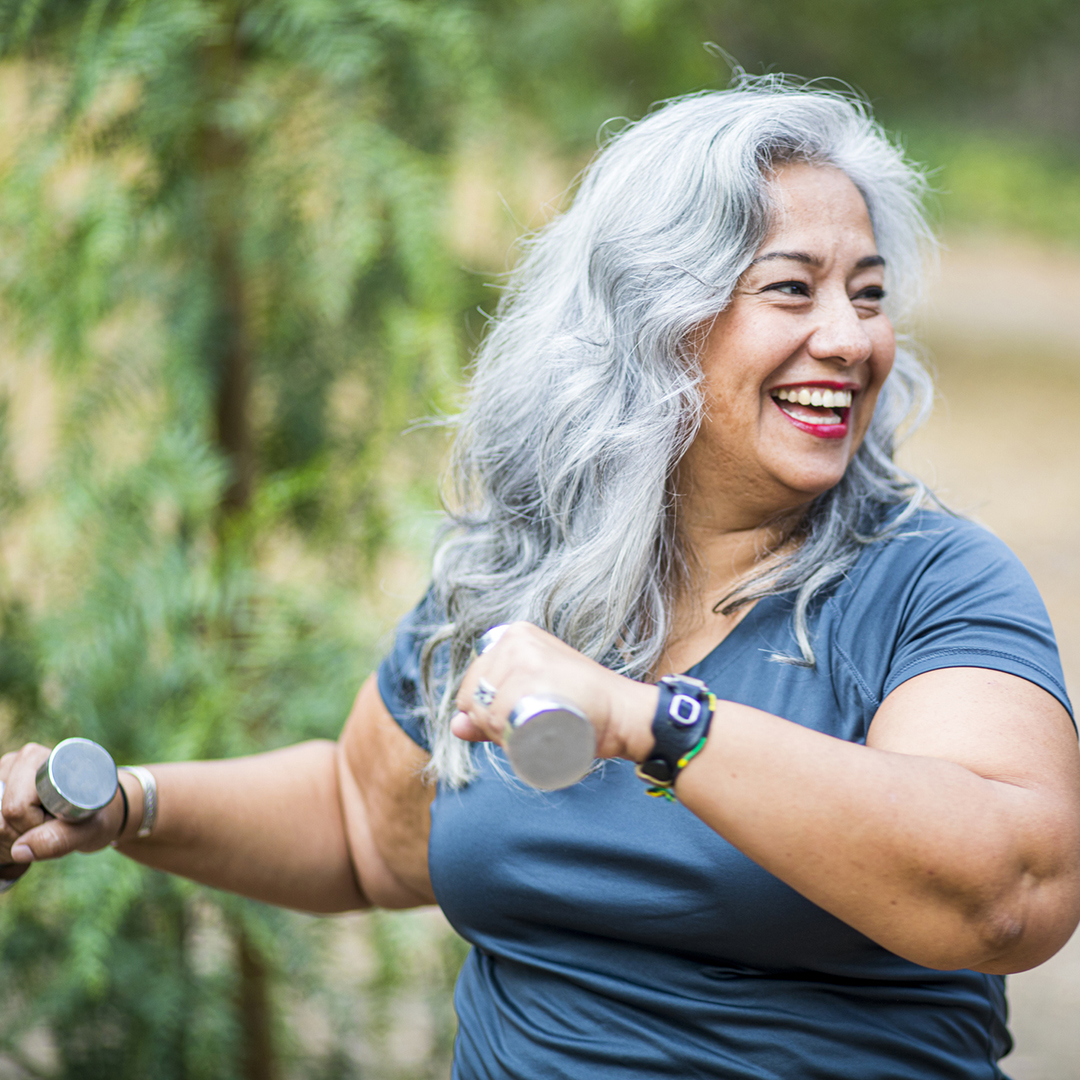What you should know about COVID-19 vaccines and medications

We answer questions about timing, safety, and effectiveness.
COVID-19 vaccines remain one of the best tools available for preventing severe disease, hospitalization, and death from COVID. As new variants of the virus continue to spread, vaccine manufacturers are creating updated vaccines to target the most prominent strains. This likely translates to better protection, but it can also lead to confusion.
If you’re taking medication for an ongoing health condition, you may be wondering if it’s safe to get a COVID-19 vaccine. You also may be wondering if your medication could affect how well the vaccine works.
We spoke with Marie Jacinto-Dearing, a registered pharmacist with Express Scripts® Pharmacy, who has been practicing pharmacy since 1997. She addressed some common questions and concerns about medications and the COVID-19 vaccines.
I’m taking a blood thinner. Is it safe to get a COVID-19 vaccine?
The benefits of vaccination typically outweigh the small risk of bruising, said Jacinto-Dearing. As with any vaccine that’s given intramuscularly, it’s important to discuss it with your doctor first. You should also report any unusual or excessive bleeding or bruising.
Should I get a COVID-19 vaccine if I’m taking immunosuppressant medications or have a weakened immune system?
None of the COVID-19 vaccines contains live viruses, so there’s no risk of getting COVID-19 from the vaccines. In addition, those whose immune systems are weakened due to illness may be at a greater risk for developing severe illness from COVID-19. The risk is also greater for people taking certain medications, such as rheumatoid arthritis medications, medications given after organ transplants, and long-term steroids.
As with all vaccines given to immunosuppressed individuals, the immune response to the COVID-19 vaccine may not be as strong as it is in people with healthy immune systems. Therefore, the Centers for Disease Control and Prevention (CDC) implemented specific guidelines for individuals who are moderately or severely immunocompromised. The recommended vaccine type and total number of updated doses depend on your COVID-19 vaccination history.
- For unvaccinated individuals 6 months and older who are immunocompromised, the CDC recommends getting two or three doses of the same brand of updated COVID-19 vaccine, with the possibility of additional doses based on the recommendation of your healthcare provider.
- For immunocompromised individuals 6 months and older who received a COVID-19 vaccine before September 12, 2023, the CDC recommends getting one or two doses of the updated COVID-19 vaccine.
- For immunocompromised individuals 6 months and older who received one dose of the 2023-2024 COVID-19 vaccines, the CDC advises that you may get an additional updated COVID-19 vaccine dose two or more months after your last dose. Your healthcare provider can help you figure out if it makes sense to get any additional doses.
Visit the CDC website to stay up to date on the latest guidelines.
If you’re starting immunosuppressive medication and there’s flexibility with timing, it may help to wait at least two weeks after the COVID-19 vaccine series before starting the medication. But that’s a decision that should be discussed with your doctor first, said Jacinto-Dearing.
She also wants to remind those with weakened immune systems to continue taking precautions, such as wearing a mask and avoiding poorly ventilated or crowded indoor settings. It’s especially important since they may not be fully protected against COVID-19, even after being vaccinated.
What about over-the-counter medications, such as ibuprofen, aspirin, or acetaminophen? Can I take any of those before I get a COVID-19 vaccine to help prevent side effects?
It’s unclear if these medications can affect how well the vaccine works, so they’re not recommended for this reason. However, if you’re taking them regularly for other reasons, you should continue to take them as prescribed. In addition, it’s OK to take them to relieve any side effects you may experience after receiving the vaccine, such as low-grade fever or muscle aches and pains.
It’s also not recommended to take antihistamines, like Benadryl, before getting a COVID-19 vaccine to try to prevent allergic reactions. If you actually have an allergic reaction to the vaccine, antihistamines may make it harder to diagnose, delaying important treatment.
Talk to your care team about your situation.
You should always talk to your doctor before getting any vaccine. Pharmacists can also help answer any questions you may have about medications you’re taking and how they interact with vaccines. Remember, Express Scripts® Pharmacy provides 24/7 access to pharmacists by phone, so you always have the support you need.
Original posted date: October 12, 2021
Posted date: January 26, 2024


